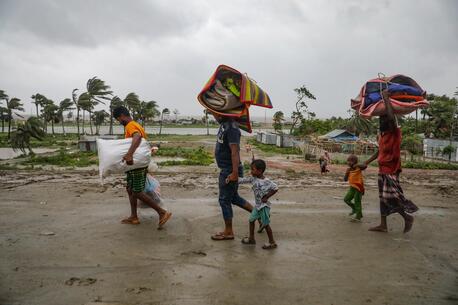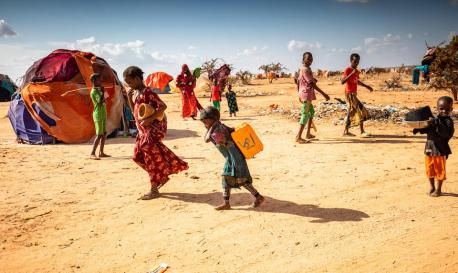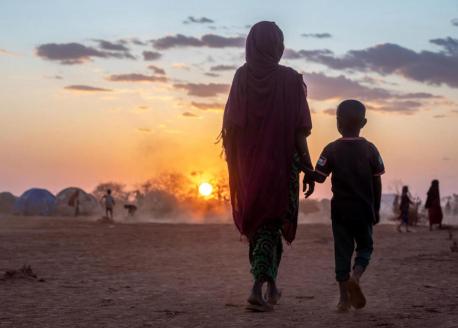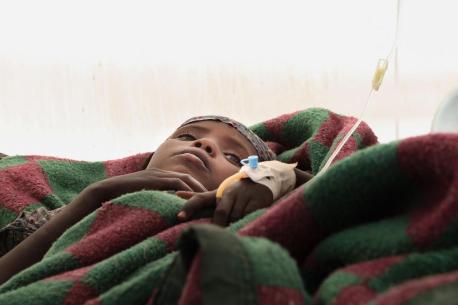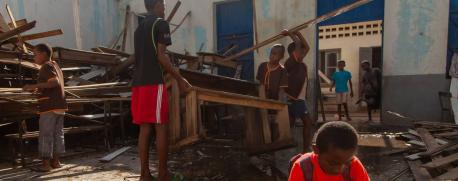
Weather Disasters
How UNICEF helps children, families and communities impacted by extreme weather, one of the most devastating impacts of climate change.
Extreme weather events are more intense and more frequent because of climate change
Roughly 1 billion children worldwide are at extremely high risk due to the impacts of climate change, including climate-related disasters. These include extreme weather events, which have grown more intense and more frequent.
With every hurricane or cyclone strike, children who are already vulnerable, including children whose families live in poverty, are disproportionately impacted — and the impacts can be devastating.
Monsoons trigger flooding and landslides that wipe out entire towns. A typhoon's destructive winds uproot trees and turn buildings and roads into rubble.
Those living in affected areas are often displaced — forced to flee to safety as homes, schools and other critical infrastructure are damaged or destroyed.
Safe drinking water, health care and nutrition become even more difficult to access.
Children are cut off from schooling, and can lose critical social services and protection — and become separated from parents — all while finding themselves in hazardous environments.
Risks of violence, exploitation and abuse increase. In some places, this is especially the case for girls and children with disabilities.
How UNICEF helps vulnerable children, families and communities impacted by weather disasters
Preparedness is key. Before a disaster strikes, UNICEF works with partners and communities to identify risks, develop contingency plans and preposition supplies so they are prepared to respond as fast and effectively as possible.
Emergency assistance measures often include:
- supporting displaced children and families at temporary shelters
- distributing safe water and hygiene supplies to prevent spread of disease
- providing emergency health care including essential vaccines
- providing treatment for malnutrition
- distributing educational materials and creating safe spaces where displaced children can learn and play
- connecting children and families with protective services and mental health and psychosocial support
- identifying children who have become separated and reuniting them with their families or caregivers
- providing cash assistance to vulnerable families to help them meet their most urgent needs
UNICEF also supports longer-term recovery efforts, such as repairing damaged water and sanitation infrastructure. And through local and national partnerships, UNICEF supports system strengthening to help countries become better prepared, protected and resilient to future crises.
UNICEF responds to hundreds of humanitarian emergencies every year while working to reduce disaster risks and otherwise mitigate the impacts of climate change on vulnerable children, families and communities. Learn more.
Help UNICEF increase its impact for children. Donate today.
Top photo: Students pitch in to help restore an elementary school in Mananjary, Madagascar, that suffered heavy damage when back-to-back cyclones, Batsirai and Emnati, hit the area in February 2022. UNICEF's emergency response included distributing relief kits to affected families and building latrines for improved sanitation and hygiene. UNICEF also set up temporary classrooms and distributed school supplies to keep children learning. © UNICEF/UN0605768/Raharinaivo
